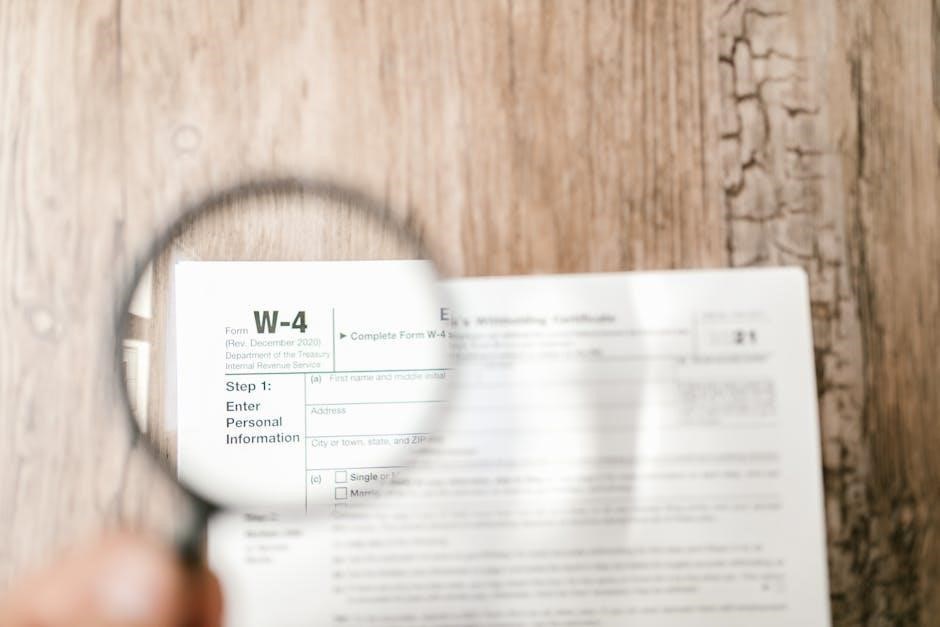Every Landlord’s Tax Deduction Guide provides a comprehensive overview of rental income‚ taxable profit‚ and allowable expenses. It helps property owners minimize tax liabilities through strategic financial planning and maximize savings.

1.1 Understanding Rental Income and Taxable Profit
Rental income includes all payments received from tenants‚ such as monthly rent‚ security deposits‚ and fees for services like parking or laundry. Taxable profit is calculated by subtracting allowable expenses from gross rental income. Key deductions include mortgage interest‚ property taxes‚ insurance‚ and operating costs. Accurate record-keeping is essential to ensure compliance and maximize tax savings. Understanding these concepts helps landlords navigate complex tax rules and optimize their financial strategies effectively. Properly differentiating between income and expenses ensures accurate tax reporting and minimizes liability.
1.2 Overview of Key Tax Deductions for Landlords
Landlords can deduct various expenses to reduce taxable income. Key deductions include mortgage interest‚ property taxes‚ and operating expenses like insurance‚ utilities‚ and maintenance. Depreciation of real estate and appliances also provides long-term tax benefits. Travel costs related to property management and professional fees‚ such as legal and accounting services‚ are also deductible. Understanding these deductions is crucial for landlords to minimize tax liabilities and ensure compliance with tax regulations. By leveraging these deductions‚ landlords can optimize their financial strategies and retain more income from their rental properties. Proper documentation is essential to support these claims during tax filing.
Top Rental Property Tax Deductions
Key deductions include mortgage interest‚ property taxes‚ depreciation‚ and operating expenses like insurance and maintenance. These deductions help landlords minimize taxable income and maximize financial savings effectively.

2.1 Mortgage Interest
Mortgage interest is one of the most significant tax deductions for landlords. It allows property owners to deduct the interest paid on loans used to purchase or improve a rental property. This deduction can substantially reduce taxable rental income‚ leading to lower overall tax liability. Importantly‚ the interest must be tied to the rental property and cannot include personal use portions. Landlords can claim this deduction annually‚ making it a crucial component of their tax strategy to maximize savings and ensure compliance with IRS guidelines. Proper documentation is essential to support this deduction during tax filings.
2.2 Property Taxes
Property taxes are a key deductible expense for landlords‚ allowing them to reduce their taxable rental income. These taxes are levied annually on the assessed value of the rental property and vary by location. Landlords can deduct both local and state property taxes‚ as long as they are directly related to the rental property. This deduction is particularly beneficial‚ as it offsets a significant ongoing expense. Proper documentation‚ such as tax receipts‚ is essential to support this deduction during tax filings. By claiming property taxes‚ landlords can significantly lower their tax liability and improve their overall financial position. Compliance with local tax regulations is crucial.
2.3 Depreciation of Real Estate
Depreciation of real estate is a critical tax deduction for landlords‚ allowing them to allocate the property’s cost over its useful life. IRS guidelines specify a 27.5-year recovery period for residential properties and 39 years for commercial ones. This annual deduction reflects the property’s wear and tear. Landlords can depreciate the building structure but not the land value. Proper documentation‚ including purchase price allocation‚ is necessary to support this deduction. By accurately calculating depreciation‚ landlords can reduce taxable income and enhance cash flow. Regular updates to depreciation schedules ensure compliance with tax regulations and optimize financial benefits over time.

2.4 Operating Expenses
Operating expenses are essential deductions for landlords‚ covering day-to-day costs of managing rental properties. These include utilities‚ garbage removal‚ and janitorial services when paid by the landlord. Administrative fees‚ such as office supplies and software for property management‚ are also deductible. However‚ expenses must be ordinary and necessary for maintaining the property. Proper documentation‚ like receipts and invoices‚ is crucial for substantiating these deductions. Accurate tracking ensures landlords maximize their tax savings without overstepping IRS guidelines‚ maintaining compliance and optimizing financial benefits effectively. This approach helps landlords reduce taxable income while preserving property value and tenant satisfaction over time.

Allowable Expenses for Landlords
Allowable expenses for landlords include mortgage interest‚ property taxes‚ insurance‚ and operating costs. These deductions reduce taxable income‚ helping landlords minimize their tax liability effectively while maintaining compliance.
3.1 Insurance Premiums
Insurance premiums are a key allowable expense for landlords. These include liability insurance‚ property insurance‚ and flood insurance if applicable. Premiums paid to protect the rental property are fully deductible‚ reducing taxable income. Additionally‚ eco-friendly rental properties may offer special considerations for insurance-related deductions. Always ensure policies are specifically for rental use‚ as personal insurance does not qualify. Proper documentation is essential to claim these deductions accurately. This expense helps landlords safeguard their investment while optimizing tax savings. Staying informed about insurance-related tax benefits ensures compliance and maximizes financial returns for property owners.
3.2 Travel and Transportation Costs
Travel and transportation expenses related to managing a rental property are deductible. This includes trips to inspect the property‚ handle repairs‚ or meet with tenants. Local travel expenses‚ such as driving to the property‚ can be claimed based on mileage. Long-distance travel costs‚ including flights and hotels‚ may also qualify if the primary purpose is property management. Proper documentation‚ such as receipts and mileage logs‚ is essential to support these deductions. These expenses help reduce taxable income and are a valuable component of a landlord’s tax strategy‚ ensuring compliance with IRS guidelines while optimizing financial benefits.
3.3 Repairs and Maintenance
Repairs and maintenance costs are essential deductions for landlords‚ ensuring the property remains habitable and functional. These expenses include fixing broken appliances‚ plumbing issues‚ and structural repairs. Routine maintenance‚ like landscaping or pest control‚ also qualifies. However‚ improvements that increase the property’s value‚ such as renovations‚ are treated differently and may require depreciation. Keeping detailed records of all repairs and maintenance activities is crucial for tax compliance. These deductions help landlords reduce taxable income and maintain a profitable rental business‚ aligning with IRS guidelines for allowable expenses related to property upkeep and tenant satisfaction.
Tax Relief and Compliance
Understanding recent changes in tax relief and ensuring compliance with updated regulations is crucial for landlords to maximize deductions and avoid penalties.
4.1 Changes to Tax Relief for Residential Properties
Recent changes to tax relief for residential properties have impacted landlords‚ particularly regarding finance costs. The restriction limits relief to the basic tax rate‚ affecting profitability. Understanding these adjustments is essential for accurate tax planning and compliance. Landlords must adapt strategies to minimize tax burdens while staying informed about evolving regulations. Proper record-keeping and professional advice are vital to navigate these changes effectively and ensure all allowable deductions are claimed correctly.

4.2 Capital Expenditures and Tax Benefits
Capital expenditures‚ such as property improvements‚ offer long-term tax benefits through depreciation. These expenses‚ unlike repairs‚ are not immediately deductible but can be claimed over the asset’s life. Depreciation allows landlords to reduce taxable income annually‚ providing significant savings. Proper documentation and understanding of IRS rules are essential to maximize these benefits. Consulting a tax professional ensures compliance and optimal financial planning for rental property investments. Accurate record-keeping of capital expenditures is crucial for determining property basis and future tax implications‚ making it a cornerstone of effective landlord tax strategies.

Additional Considerations
Understanding home office deductions and legal fees is crucial for landlords. These often-overlooked areas can significantly impact tax savings and compliance‚ ensuring optimal financial management of rental properties.

5.1 Home Office Deductions for Landlords
Landlords can deduct home office expenses if the space is used exclusively for rental activities. This includes a portion of rent‚ utilities‚ and insurance; The IRS allows two methods: the simplified option‚ which provides a flat rate per square foot‚ and the actual expenses method. Proper documentation is essential to support these deductions. This can help reduce taxable income and optimize overall tax savings for property owners managing their rentals from home. Always consult tax professionals for accurate calculations and compliance with current regulations.

5.2 Legal and Professional Fees
Legal and professional fees related to managing a rental property are deductible expenses. This includes fees paid to accountants‚ attorneys‚ and letting agents for services like tax preparation‚ eviction processes‚ or drafting rental agreements. However‚ fees for purchasing or selling a property are not deductible as operating expenses. These costs must be directly tied to rental activities to qualify. Proper documentation is essential to support these deductions. Consulting a tax professional ensures compliance with IRS guidelines and maximizes allowable expenses‚ helping landlords reduce their taxable income effectively.
Maximizing tax savings as a landlord requires understanding deductions and maintaining precise records. Staying informed and organized ensures compliance and optimizes financial benefits from rental properties effectively.
6.1 Maximizing Tax Savings as a Landlord
Maximizing tax savings requires a thorough understanding of all allowable deductions. Landlords can deduct mortgage interest‚ property taxes‚ insurance‚ and operating expenses‚ significantly reducing taxable income. Depreciation of property and appliances also offers long-term savings. Keeping detailed records ensures no eligible expense is overlooked. Additionally‚ staying informed about tax law changes‚ such as relief adjustments for residential properties‚ helps landlords optimize their financial strategies. Consulting a tax professional can further enhance savings by identifying less obvious deductions and ensuring compliance with all regulations. Effective planning and organization are key to maximizing tax efficiency.
6.2 Importance of Record-Keeping and Compliance
Maintaining accurate and detailed records is crucial for tax compliance and maximizing deductions. Landlords must document all rental income‚ expenses‚ and property-related transactions. Proper record-keeping ensures that no eligible deduction is missed and supports claims in case of audits. Compliance with tax laws‚ including timely filings and adherence to regulations‚ avoids penalties. Organized records also aid in tracking depreciation‚ operating expenses‚ and capital expenditures‚ which are vital for long-term tax planning. Staying organized and compliant not only safeguards financial interests but also streamlines the tax filing process‚ ensuring landlords meet all legal requirements efficiently.